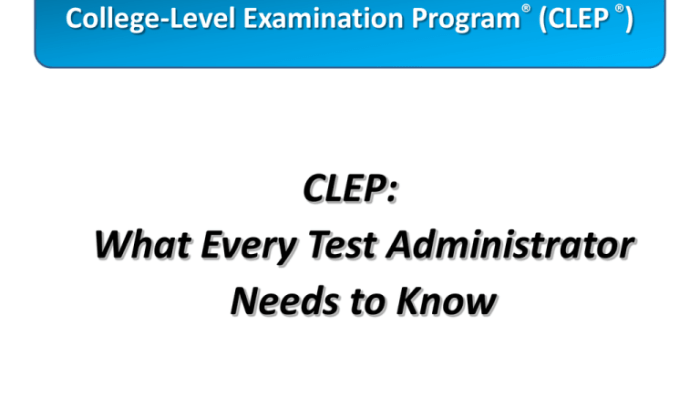Rutgers calc 135 final exam – Prepare for academic victory with our comprehensive guide to the Rutgers Calculus 135 Final Exam. This essential resource will equip you with the knowledge and strategies to conquer this challenging assessment.
In this guide, we’ll delve into the exam’s structure, grading criteria, and frequently tested topics. We’ll also provide effective study techniques, sample exam questions with solutions, and tips for maximizing your performance on exam day.
Rutgers Calculus 135 Final Exam Overview: Rutgers Calc 135 Final Exam
The Rutgers Calculus 135 Final Exam is a comprehensive assessment of students’ understanding of the fundamental concepts and techniques covered in the course. It is designed to evaluate students’ ability to apply their knowledge to solve problems and demonstrate their mastery of the subject matter.
The exam typically consists of multiple-choice questions, short answer questions, and long answer questions. The multiple-choice questions are designed to test students’ basic understanding of the concepts and their ability to apply them to simple problems. The short answer questions require students to explain their reasoning and demonstrate their ability to solve problems step-by-step.
The long answer questions are more challenging and require students to synthesize their knowledge and apply it to complex problems.
Exam Structure
- Multiple-choice questions: Typically 20-30 questions, each worth 1-2 points.
- Short answer questions: Typically 5-10 questions, each worth 3-5 points.
- Long answer questions: Typically 2-4 questions, each worth 10-15 points.
Topics Covered
The exam covers all the major topics covered in the course, including:
- Limits and continuity
- Derivatives
- Integrals
- Applications of derivatives and integrals
The relative weightings of the topics vary from year to year, but in general, derivatives and integrals are typically given the most weight.
Grading Criteria
The exam is graded on a curve, with the average score typically being around 70%. Students who score above the average are typically assigned a grade of A or B, while students who score below the average are typically assigned a grade of C or D.
The specific grading criteria may vary from year to year, but in general, students are expected to demonstrate a strong understanding of the concepts and techniques covered in the course.
Exam Preparation Strategies
To excel in the Rutgers Calculus 135 Final Exam, effective study techniques and strategies are crucial. By reviewing course materials, practicing problem-solving, and managing time efficiently, you can enhance your preparation.
Reviewing Course Materials
Thoroughly review lecture notes, textbooks, and practice problems to refresh your understanding of the concepts covered in the course. Focus on identifying key formulas, theorems, and problem-solving techniques.
Practicing Problem-Solving
Practice solving a variety of problems, including those from past exams, homework assignments, and practice sets. This helps you develop problem-solving skills, identify areas where you need more practice, and build confidence in your abilities.
Managing Time Efficiently
Create a study schedule that allocates sufficient time for reviewing materials, practicing problems, and seeking support. Prioritize tasks based on their importance and difficulty. Break down large tasks into smaller, manageable chunks.
Study Groups and Support
Consider forming study groups with classmates to discuss concepts, share notes, and work on problems together. Seeking support from professors or teaching assistants during office hours or review sessions can provide valuable clarification and guidance.
Sample Exam Questions and Solutions
This section presents a collection of sample exam questions designed to cover key topics from the Rutgers Calculus 135 syllabus. Each question is accompanied by a detailed solution and explanation, highlighting common mistakes and areas where students often struggle. The questions include a variety of types, such as multiple-choice, short answer, and long answer, to provide a comprehensive review of the material.
Limits and Continuity
Question:Evaluate the limit:
$$\lim_x \to 2 \fracx^2
- 4x
- 2$$
Solution:We can factor the numerator and cancel the common factor of $(x-2)$ to obtain:
$$\lim_x \to 2 \frac(x+2)(x-2)x-2 = \lim_x \to 2 (x+2) = 4$$
Common Mistake:Students may forget to factor the numerator and cancel the common factor, resulting in an incorrect answer of 0.
Derivatives
Question:Find the derivative of the function:
$$f(x) = e^2x \sin(3x)$$
Solution:Using the product rule, we have:
$$f'(x) = e^2x \fracddx [\sin(3x)] + \sin(3x) \fracddx [e^2x]$$$$= e^2x \cos(3x) + 2e^2x \sin(3x)$$
Common Mistake:Students may forget to apply the chain rule when differentiating the term $\sin(3x)$, resulting in an incorrect answer.
Integrals
Question:Evaluate the integral:
$$\int (x^2 + 2x
1) dx$$
The Rutgers Calc 135 final exam is coming up, and I’m feeling a little stressed. I’ve been studying hard, but I’m still not sure if I’m ready. I’ve been reading online forums and found some interesting discussions, including one about is a crow boot permanent . It’s a bit of a strange topic, but it’s actually quite interesting.
I’m not sure if I’ll have time to read the whole thing before the exam, but I’ll definitely check it out later. In the meantime, I need to focus on studying for the Rutgers Calc 135 final exam.
Solution:We can use the power rule of integration to obtain:
$$\int (x^2 + 2x
- 1) dx = \fracx^33 + x^2
- x + C$$
Common Mistake:Students may forget to include the constant of integration, resulting in an incomplete solution.
Applications of Derivatives, Rutgers calc 135 final exam
Question:Find the critical points of the function:
$$f(x) = x^3
3x^2 + 2$$
Solution:To find the critical points, we set the derivative of the function equal to 0:
$$f'(x) = 3x^2
6x = 0$$
$$x(3x-6) = 0$$$$x = 0, 2$$
Common Mistake:Students may forget to set the derivative equal to 0 or may not correctly factor the expression.
Tips for Success on Exam Day
The final exam can be a stressful experience, but there are strategies you can employ to manage your anxiety and optimize your performance. Here are some tips to help you succeed on exam day.
Stay calm and focused. It’s important to remain composed and avoid letting nerves get the better of you. Deep breathing exercises and positive self-talk can help you stay centered and focused on the task at hand.
Pacing Yourself
Time management is crucial during the exam. Allocate your time wisely, ensuring you spend enough time on each question without getting bogged down on any particular one. It’s better to attempt all questions, even if you have to make educated guesses for some, rather than spending too much time on a few.
Checking Your Work
Don’t be afraid to go back and check your work, especially if you have time remaining. This helps minimize errors and ensures you’ve provided the most accurate answers possible.
Utilizing Available Resources
If you’re unsure about a question or need clarification, don’t hesitate to ask the proctors for assistance. They are there to help you and ensure a fair exam experience.
Avoiding Distractions
Minimize distractions by focusing solely on the exam. Avoid talking to your neighbors or engaging in any activities that may disrupt your concentration.
FAQ Corner
What is the format of the Rutgers Calculus 135 Final Exam?
The exam typically consists of multiple-choice, short answer, and long answer questions covering key concepts from the course syllabus.
How can I effectively prepare for the exam?
Regularly review course materials, practice problem-solving, and seek support from professors or teaching assistants.
What are some tips for managing stress on exam day?
Stay calm, pace yourself, check your work carefully, and don’t hesitate to ask for clarification from proctors.


